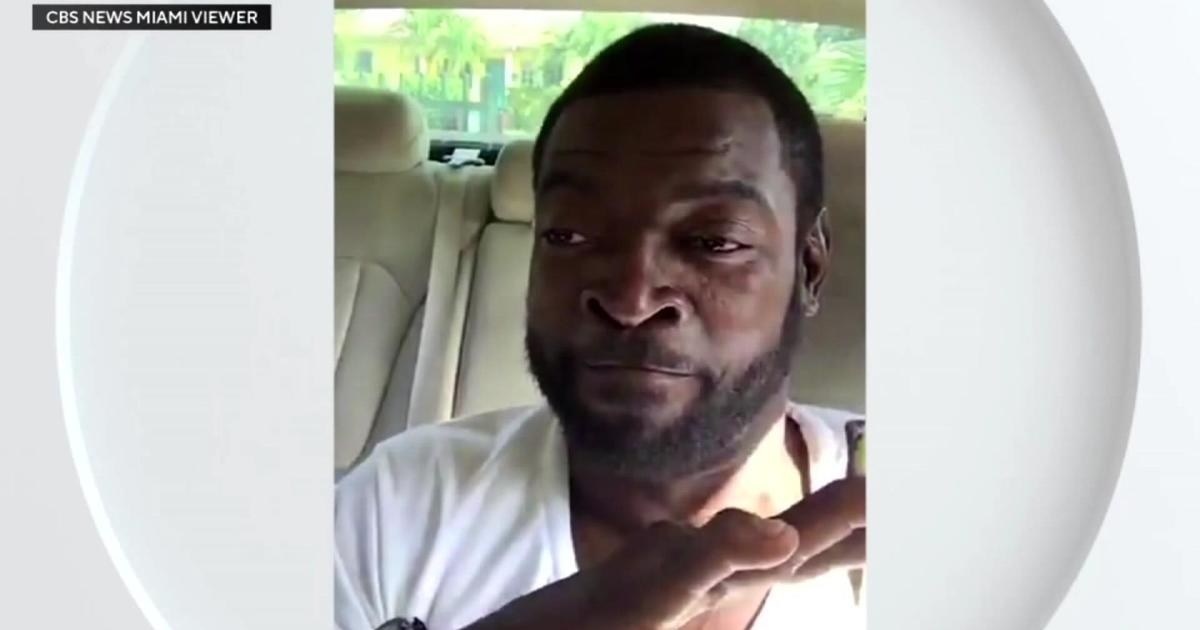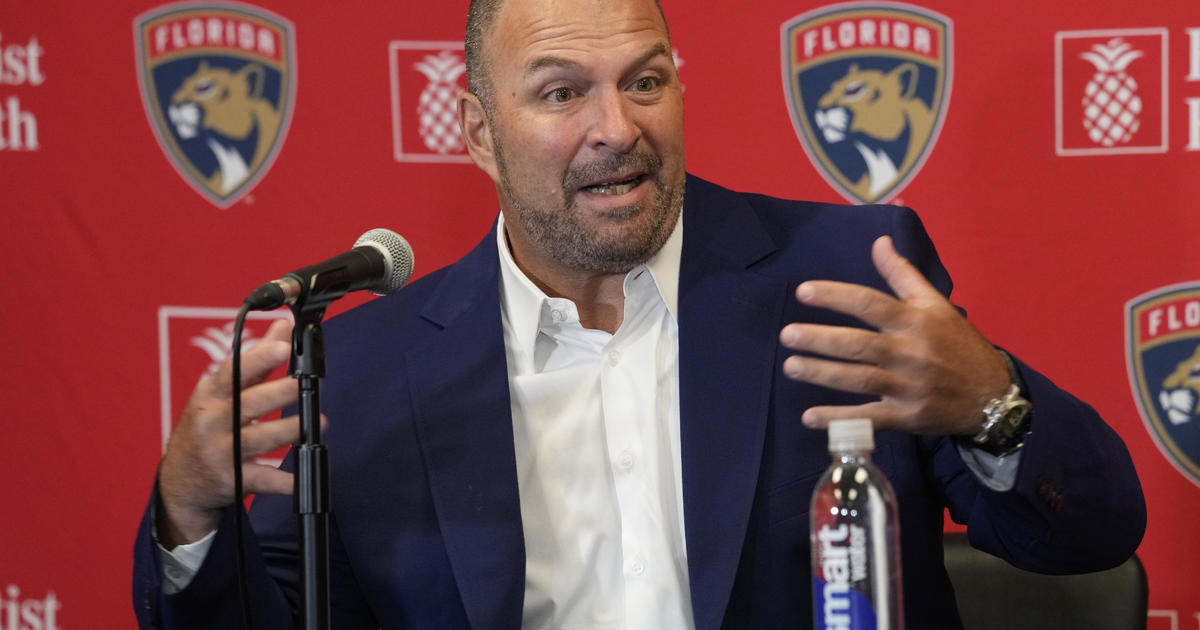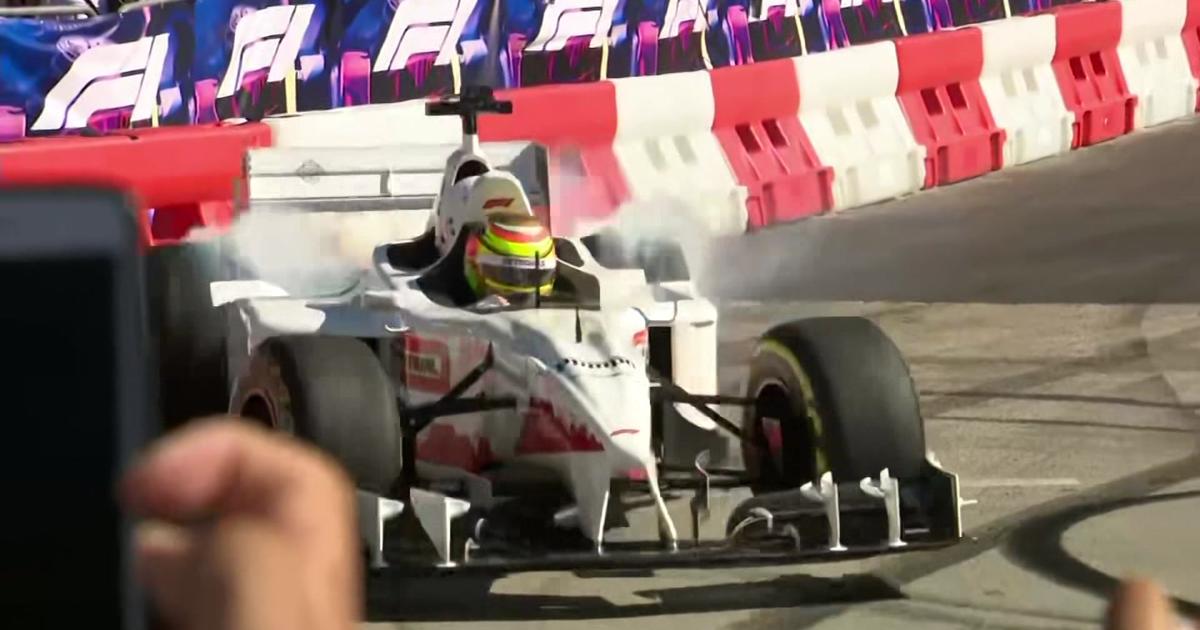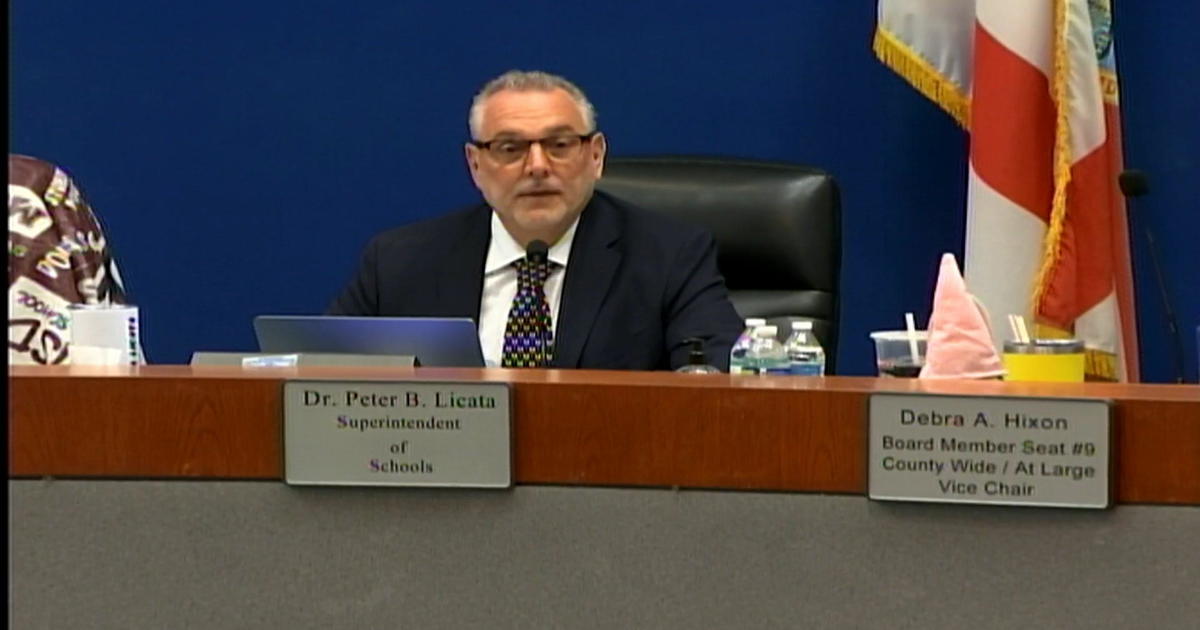'Racism Is Evil': Trump Condemns KKK, Neo-Nazis & White Supremacists
Follow CBSMIAMI.COM: Facebook | Twitter
BEDMINSTER, NJ (CBSMiami/AP) – President Donald Trump called racism "evil" when talking about the deadly attack on protesters in Charlottesville, Virginia.
Amid backlash on both sides of the aisle for not condemning white supremacists and hate groups after the weekend attack, the president specifically called some out on Monday.
"Racism is evil and those who cause violence in its name are criminals and thugs, incl. the KKK, neo-Nazis & white supremacists," said President Trump after meeting with Attorney General Jeff Sessions and FBI Director Christopher Wray.
It was a starkly different comment than what he had to say on Saturday.
"We condemn in strongest possible terms this egregious display of hatred, bigotry and violence on many sides. On many sides," said Trump on Saturday.
The following day, the White House issued a statement which read in part, "Of course that includes white supremacists, KKK, neo-Nazi, and all extremist groups."
The White House did not attach a name to the statement. Usually, a statement would be signed by the press secretary or another staffer; not putting a name to one eliminates an individual's responsibility for its truthfulness and often undercuts its significance.
On Sunday, Vice President Mike Pence defended the president and shifted the blame to the press.
"I take issue with the fact that many in the national media spent more time criticizing the president's words than they did criticizing those that perpetrated the violence to begin with," Pence said on .
The following day, Sessions also defended the president remarks on CBS "This Morning."
"His own spokesman explicitly condemned by names the Nazis and the Ku Klux Klan," said Sessions.
"But that's the spokesman, that's the spokesman and not the president," countered Charlie Rose.
"Well that's the president's spokesman and I'm sure he'll speak about it again. But his own spokesman said that. I just think we're making too much out of this," said Sessions.
Others in the Trump administration also believe the reaction to what the president did or did not say is too harsh.
"I take issue with the fact that many in the national media spent more time criticizing the president's words than they did criticizing those that perpetrated the violence to begin with," said Vice President Mike Pence who is traveling in South America.
But, some of the loudest critics were from the president's own party.
"Call this white supremacism, this white nationalism evil and let the country hear it, let the world hear it. It's something that needs to come from the Oval Office," said Sen. Corey Gardner, R-CO.
"These groups seem to believe they have a friend in Donald Trump in the White House," said Sen. Lindsey Graham, R-S.C. on "Fox News Sunday." "And I would urge the president to dissuade these groups that he's their friend."
Trump, who has been at his New Jersey golf club on a working vacation, made a one-day return to Washington on Monday to sign an executive action on China's trade practices.
Sessions also said Trump met with advisers and that the president would "do what is correct" in connection with the Virginia incident.
Trump's national security adviser, H.R. McMaster, said Sunday that he considered the attack to be terrorism. On Saturday, Trump had not responded to reporters' shouted questions about terrorism.
"I certainly think anytime that you commit an attack against people to incite fear, it is terrorism," McMaster told ABC's "This Week." ''It meets the definition of terrorism. But what this is, what you see here, is you see someone who is a criminal, who is committing a criminal act against fellow Americans."
Virginia Gov. Terry McAuliffe, a Democrat, said he spoke to Trump in the hours after the clashes and that he twice told the president "we have to stop this hateful speech, this rhetoric." He said he urged Trump "to come out stronger" against the actions of white supremacists.
Republicans joined Democrats in criticizing the president for not specifically calling out white nationalists.
White nationalists had assembled in Charlottesville to vent their frustration against the city's plans to take down a statue of Confederal Gen. Robert E. Lee. Counter-protesters massed in opposition.
Alt-right leader Richard Spencer and former Ku Klux Klan member David Duke attended the demonstrations. Duke told reporters that the white nationalists were working to "fulfill the promises of Donald Trump."
Trump's initial comments drew praise from the neo-Nazi website Daily Stormer, which wrote: "Trump comments were good. He didn't attack us. He just said the nation should come together. Nothing specific against us. ... No condemnation at all." The website had been promoting the Charlottesville demonstration as part of its "Summer of Hate" edition.
Charlottesville Mayor Michael Signer, a Democrat, slammed Trump's stance toward hate groups, saying on NBC's "Meet the Press" that he hopes Trump "looks himself in the mirror and thinks very deeply about who he consorted with."
"Old saying: when you dance with the devil, the devil doesn't change, the devil changes you," Signer said.
Trump, as a presidential candidate, frequently came under scrutiny for being slow to offer his condemnation of white supremacists. His strongest denunciation of the movement has not come voluntarily, only when asked, and he occasionally trafficked in retweets of racist social media posts during his campaign. His chief strategist, Steve Bannon, once declared that his former news site, Breitbart, was "the platform for the alt-right."
(© Copyright 2017 CBS Broadcasting Inc. All Rights Reserved. The Associated Press contributed to this report.)



